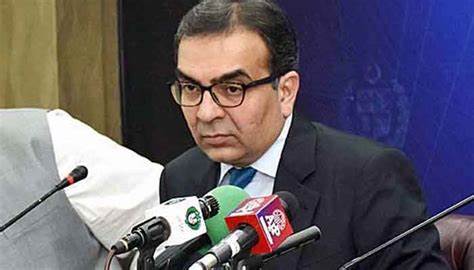ISLAMABAD: As the government intensifies efforts to reassess agreements with independent power producers (IPPs) amid soaring electricity tariffs, Special Assistant to Prime Minister on Power Muhammad Ali has accused power companies of obstructing regulatory audits.
Speaking on a talk show, Ali criticized IPPs for resisting attempts by regulators to review their operations. “No heat rate audit of IPPs has ever been conducted in this country,” he asserted, referring to audits that assess fuel efficiency in power plants.
The discussion featured prominent figures, including former Special Assistant on China-Pakistan Economic Corridor (CPEC) Khalid Mansoor, economist Ammar Habib Khan, and CEO of Lucky Electric Power Rohail Muhammad. They deliberated on controversial issues such as capacity payment charges and unchecked profitability of IPPs, which have contributed to unaffordable power bills for the public.
Ali highlighted that in 2012, the Securities and Exchange Commission of Pakistan (SECP) sought to audit IPPs over excessive profits but faced resistance, with firms obtaining a stay order from the courts. Similarly, he noted that IPPs prevented the National Electric Power Regulatory Authority (Nepra) from conducting a heat rate audit.
“If everything was above board, why resist the audits?” Ali questioned, adding that such actions undermine regulatory functionality. He emphasized the need for fairness in power sector agreements to balance interests among the government, consumers, and IPPs.
Khalid Mansoor, former CEO of Hubco, rejected the notion that IPPs resisted audits. He claimed that during his tenure as CPEC chairman, an agreement was reached to conduct heat rate audits, but the government failed to follow through. “We agreed on terms of reference and approached experts, but the process stalled,” Mansoor explained.
Mansoor also criticized the government for maintaining a single-buyer regime, advocating for competitive market reforms instead. “Open the sector, rationalize wheeling charges, and facilitate a competitive environment,” he urged.
A significant portion of the debate centered on the burden of capacity payments—fixed charges paid to IPPs regardless of power utilization. Gohar Ejaz, a businessman and former federal minister, condemned the government’s policy of recovering power losses from consumers instead of eliminating subsidies.
“The government is paying Rs2,000 billion annually to power producers in capacity charges,” Ejaz claimed, adding that some non-functional IPPs receive Rs32 billion each. He accused officials of inflating project costs and criticized coal power plants for their inefficiency, generating less than 10% of the required electricity.
Ejaz called for immediate reforms to address systemic inefficiencies and claimed that poor management of capacity payments was a “criminal act” against the public.
The discussion underscored the urgent need for policy reforms in the power sector, with participants calling for greater transparency, regulatory oversight, and competitive market practices to ease the financial burden on consumers and stabilize the energy economy.




